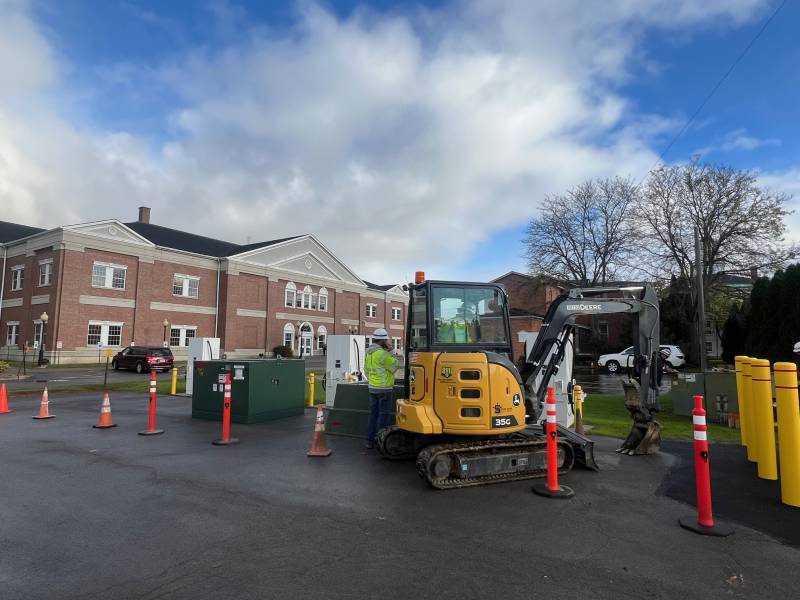
Genesee County Planning Board Director Felipe Oltramari spoke optimistically this week about National Grid's ability to hook up the electric charging stations behind the county courthouse in downtown Batavia, and the company showed up on Wednesday to do the job.
Charging stations for electric vehicles will be available at the site on Ellicott Street as part of the city's and county's plan to accommodate the newer "green" vehicles being driven within and through the city from various points in the region.
The city of Batavia has 88 public charging stations, 19 of which are free, according to plugshare.com. Batavia has a total of 24 DC Fast Chargers.
Other locations include Towne Center on Veterans Memorial Drive, Batavia Downs Gaming & Hotel on Park Road, Quicklee’s 27 on Oak Street, City Church on East Main Street, and Flying J Travel Center in Pembroke.
For the complete map, go HERE.
UPDATED 10/17/24: Oltramari offered some additional information about the chargers and related stations in the county. DC fast chargers are the orange markers on the map linked in the article. The only other DC fast chargers in Batavia are the 12 Tesla stations (12 plugs up to 250 kW each) at Town Centre (Target Plaza), and the two stations (two plugs up to 62.5kW each) at Quicklee’s.
As far as Genesee County, there are two DC fast charging stations (four plugs up to 350 kW) at the Flying J in Pembroke and another one (one plug up to 100 kW) at the Ontario Thruway Travel Plaza in LeRoy. There are also seven stations/plugs under construction at the Pembroke Thruway Travel Plaza. Of course, the Thruway stations are priced higher (like everything else at the travel plaza), he said.
There will be three (six plugs up to 180 kW) Courts Facility stations. DC chargers are faster because the EV does not have to convert the electricity from AC to DC. DC fast chargers also have higher electric loads (kW) which will charge an EV in 20 minutes to an hour, he said.
Generally, the more kilowatts, the faster the charge, but how fast also depends on the vehicle. Most EVs can charge at 120–150 kW, but some older or cheaper EVs can only charge at 40-50 kW. Also, some chargers (like the new ones are at the Courts Facility) have two plugs per station where there is “dynamic distribution,” which means if two cars are sharing a station they will also share the electric load and each will get up to 90 kW.
